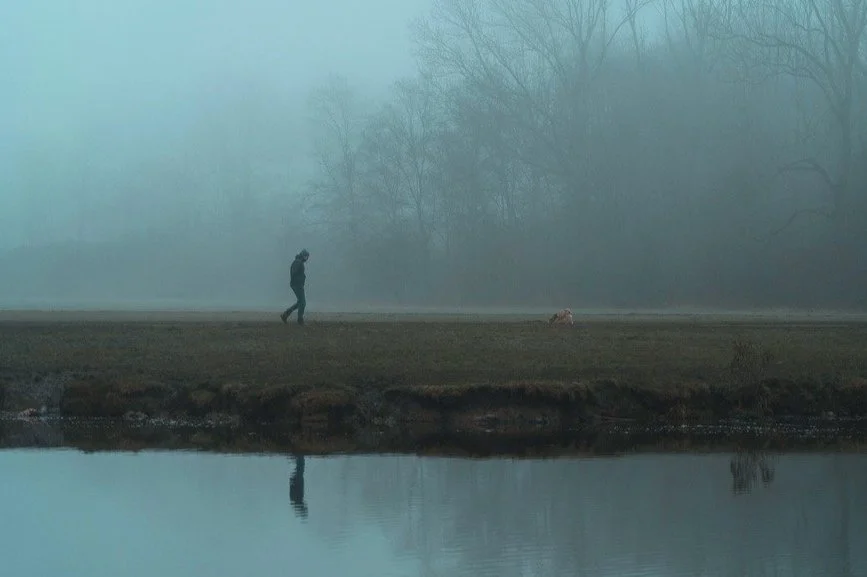At times you may feel like you’re drowning and unable to move
Many of us have wondered if we or someone we know have been depressed. Depression is more than just feeling sad, pessimistic, lonely, or simply “down.” Depression can sometimes make it hard for us to wake up in the morning and go about our day, difficult to engage with others, or able to experience joy and pleasure.
Depression can feel like a cloud above your head, keeping the light from shining through. It can feel like a ball and chain attached to your ankle, making it difficult to walk through your day. Or like a heaviness deep in your chest, that makes it difficult to laugh, enjoy, and feel connected with others. Treatment for clinical depression can include multiple aspects, including depression talk therapy.
Your experience of depression might be different. You might be able to function, interact with family and friends, and show up for work or school, but you do so with a kind of unshakeable heaviness and dread as if you’re just going through the motions. Nobody can see it, but you know something is going on, impacting your relationships, how you feel about yourself, and your outlook on life. Seeking therapy for depression can help address these experience before they become overwhelming.
How can therapy for depression help you?
Treatment for depression can help you understand what is at the root of your own experience. By expanding our awareness and understanding, we can make sense of what depression symptoms are telling us. Our Chicago depression therapists can help you make sense of your unique experience, understanding who you are, not only what you have.
Depression therapy and counseling can help you understand the personal meaning of your symptoms so that they can be worked through. This process can help you lighten the weight you’ve been carrying, feel better able to navigate life’s challenges, find acceptance and compassion for your own experience, and reconnect with your ability to enjoy life without feeling you’re just keeping your head above water.
What is Depression?
Depression is generally considered a “mood disorder,” because it involves disturbances in our mood and subsequent changes in our thoughts, behaviors, and feelings. We think of depression as a human experience rather than as a disease.
What this means is that, even in cases of clinical depression, treatment needs to involve more than addressing symptoms. Depression is also much more complex than just a “chemical imbalance” in the brain. Depression might involve biology and genetics, but it also involves a combination of developmental, emotional, psychological, social, and environmental factors. For that reason, talk therapy for depression can offer the opportunity to understand the complexity of your personal experience.
Sometimes we may have an idea of why we feel depressed. Perhaps we recently experienced loss, disappointment, relationship issues, or life is just not going the way we wished or expected. Frequently, though, we just don’t know what’s behind our feelings of depression, leading to a feeling of confusion, anxiety, or shame, for not being able to explain or change this feeling.
Depression is like a fever
When we have a fever, that means that our body is fighting an infection. We can or may need to take medication or change our behaviors to lower the fever; however, that won’t take care of the underlying issue. Usually, depression is also a sign that there is something else going on.
Some depression treatment options involve taking medications or attempting to just “think” or “act” differently to manage, but will probably not address the root cause. For true change to take place, it has to come from within. We usually need to take the time to address and work through the underlying issues. That is where treating depression through psychodynamic therapy can help.
Therapy For Depression Works.
.
Symptoms of depression
While it is more than a collection of symptoms, it is important to recognize what depression might look like and what treatment can address:
Persistent sad, anxious, or “empty” mood
Feelings of hopelessness, or pessimism
Loss of interest or pleasure in hobbies and activities
Irritability
Feelings of guilt, worthlessness, or helplessness
Decreased energy or fatigue
Moving or talking more slowly
Feeling restless or having trouble sitting still
Difficulty concentrating, remembering, or making decisions
Difficulty sleeping, early-morning awakening, or oversleeping
Appetite and/or weight changes
Thoughts of death or suicide, or suicide attempts
These symptoms might describe impairing experiences, such as major depression disorder. However, sometimes depression symptoms might look like the opposite. In order to unconsciously avoid, numb, or ward off depressive feelings, we might start “over-functioning” or engaging in compulsive behaviors.
People might start overworking, overbooking their calendars, drinking more, or compulsively seeking intensity and excitement. They might also develop attitudes aimed, consciously or not, at keeping away underlying depression, such as relentless “positivity” or perfectionism. The heaviness of the underlying depressive emotions is such that we need to avoid those feelings at all costs.
types of depression
A useful way to think about what depression is about is to consider two types of depression, based not on external symptoms but on our internal dominant feelings. People may experience traits of one or both of them.
Introjective depression is mainly characterized by self-criticism, self-punishment, and feelings of guilt. People can be harsh self-critics, putting themselves down, believing that they deserve the blame when things go wrong because of their perceived “badness,” minimizing or dismissing their own needs and wants.
Anaclitic depression is defined by feelings of emptiness, inadequacy, and shame. People might be sensitive to loss, separation, rejection, and abandonment. They fear and anticipate emptiness, loneliness, and helplessness, becoming anxious in relationships and limiting the expression of their needs, as they fear that might lead to the loss of love and care.
Therapy for depression can be essential to help you recognize and work through the different layers of your experience.
Working with our depression therapists in Chicago
There are multiple depression treatment options, including some that focus on the biological and neurological aspects of depression. While these are sometimes useful for some people, they do not address the complexity and deep meaning of depression. This is where depression therapy comes in.
We all experience depression differently, impacting our lives, our personalities, and our relationships in very personal ways. Depression counseling at Fermata Psychotherapy will allow you to increase your self-awareness and understanding of the origin and meaning of your depression. You will do this, along with your therapist, in a safe and non-judgmental environment, where you can explore your experience, identify patterns that depression has created in your life, and develop a sense of self-acceptance and compassion.
If your feelings are an expression of deep-seated sadness, trauma, or loss, you will find ways to mourn and process those experiences. Depression therapy can help you find new ways to relate to yourself, reclaim a sense of agency and hope, improve your relationships, and take steps toward living a more authentic, centered, and fulfilling life. Our depression therapists in Chicago can support you through this journey in person or via telehealth.
book an appointment for DEPRESSION therapy
Related posts in our blog
Banner photo credit: Matteo Raw










